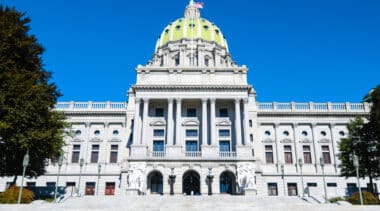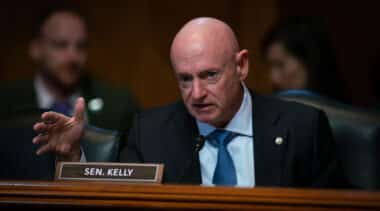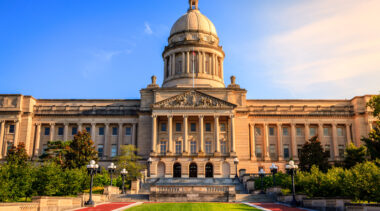-
Pennsylvania stalls on prison ID reform where other states found bipartisan consensus
Pennsylvania has twice rejected legislation to provide identification documents to people leaving prison, even as other states have embraced similar reforms.
-
Nobel Prize winners make powerful case for optimism amid technological change
The Nobel laureates’ work puts free minds and free markets squarely at the center of how societies prosper through innovation.
-
Ohio lawmakers consider bill to promote an independent childhood
Senate Bill 277 would assure parents that they can let their children engage in safe, reasonable activities without mandated adult supervision.
-
New York’s stalled AI bill would have blurred the line between disclosure and restriction
While pitched as a transparency measure, Assembly Bill 8595 would have set a new, unusually high bar for compliance.
-
Best practices to prevent misuse of opioid settlement funds
States should adopt clear guidelines to ensure settlement funds support evidence-based treatment and recovery.
-
The FDA’s plan to fast-track nicotine pouches is long overdue. But why aren’t vapes included?
The FDA should expand its accelerated pathway to include e-cigarettes, giving adult smokers a full range of safer alternatives.
-
Democrats pivot on AI: Less regulation, more redistribution
The focus of Sen. Mark Kelly’s “AI for America” plan departs from other federal artificial intelligence policy proposals introduced by Democrats.
-
Investor-owned housing helps renters
It is not the infusion of capital from investors that disrupts housing markets; it is local government policies that do not let supply keep up with demand.
-
Reforming the TSA so airport security isn’t impacted by government shutdowns
Congress should remove TSA's conflict of interest as both the provider and regulator of airport security.
-
Only in America: Government shutdown causes air traffic control problems
It’s time for the U.S. to join the rest of the world in recognizing that governments should regulate safety but not run air traffic control.
-
New data model addresses Florida’s statewide housing supply shortages
The new Florida Housing Data Project is an interactive webpage providing housing data and analysis for the state and each of its counties.
-
Open enrollment is an important part of school choice for California
California’s current public school transfer laws are overly restrictive, complicated and in need of reform.
-
Sen. Ted Cruz proposes federal regulatory sandbox to encourage AI innovation, development
The SANDBOX Act would allow innovators to obtain temporary regulatory waivers for artificial intelligence technologies from federal agencies.
-
How Congress can spur the modernization of U.S. airports
Congress should enable airports to improve their performance and compete on a level playing field with airport public-private partnerships in Europe, Latin America, and Asia.
-
A look at the White House’s pro-innovation artificial intelligence ‘action plan’
The White House's AI action plan represents a clear policy direction favoring rapid innovation and reduced regulatory oversight.
-
State psychedelics legalization and policy roundup — October 2025
Kentucky debates clinical ibogaine trials, Mississippi considers ibogaine, Massachusetts bill would decriminalize psilocybin, and more.
-
Restricting mobile health vans in Philadelphia will lead to more overdose deaths
Philadelphia's city government can address legitimate quality-of-life concerns in Kensington without constraining lifesaving services.
-
The Low-Income Housing Tax Credit does not address the root of America’s housing challenges
While the tax credit has maintained support since its inception, it is worth considering whether alternative policies would better address current housing needs.

















